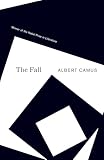
Since publishing his debut novel, The Meursault Investigation, in his home country in 2013, Algerian journalist Kamel Daoud has been accused of much, but being unambitious is not among the many charges.
 That’s what happens when you take as your inspiration Albert Camus’s 1942 absurdist masterpiece, The Stranger, and craft a complex and clever piece of storytelling that operates on multiple levels, simultaneously acting as a personal confession and an indictment of present-day Algeria.
That’s what happens when you take as your inspiration Albert Camus’s 1942 absurdist masterpiece, The Stranger, and craft a complex and clever piece of storytelling that operates on multiple levels, simultaneously acting as a personal confession and an indictment of present-day Algeria.
Camus, the French Nobel-Prize winner, took the literary world by storm with his debut novel in 1942. It told the story of a detached French Algerian, Meursault, who kills an Arab on a beach for no apparent reason other than sun and sweat clogging his eyes. Meursault’s later conviction is based largely on the judgment of his character, including his inability to exhibit emotion following his mother’s death — or any emotion at all, really — rather than on the fact that he committed the crime.
Daoud’s novel has had something of the same rousing effect as Camus’s — written in French, it’s sold 100,000 copies in France alone. Taking as his novel’s main conceit that The Stranger is a true story, and that Meursault is its author, The Meursault Investigation tells the story from the perspective of the brother of the Arab murdered by Meursault.
 The brother, Harun, now an octogenarian, shares many similarities with Meursault, even acknowledging as much during the course of the novel, which is really one long monologue in the style of Camus’s The Fall. “I was looking for traces of my brother in the book, and what I found there instead was my own reflection, I discovered I was practically the murderer’s double.” Here is what he sees: Two men driven to murder, two men haunted by their mothers, and two men who approach religion with disdain.
The brother, Harun, now an octogenarian, shares many similarities with Meursault, even acknowledging as much during the course of the novel, which is really one long monologue in the style of Camus’s The Fall. “I was looking for traces of my brother in the book, and what I found there instead was my own reflection, I discovered I was practically the murderer’s double.” Here is what he sees: Two men driven to murder, two men haunted by their mothers, and two men who approach religion with disdain.
But the two do diverge.
For one thing, Meursault and Harun are moving in quite opposite directions.
Meursault has divorced himself from history, has, as he tells the investigator tasked with questioning him following his crime, given up analyzing himself. Assigning meaning to the world is something he has lost the energy to do.
Harun, on the other hand, is driven by the desire to impose form on a lifetime of quasi-intelligible incidents, the foremost of which is the murder of his brother and its aftermath, which has sentenced its victims — Musa, Harun, their mother — to anonymity.
“There’s not a trace of our loss or of what became of us afterward,” Harun tells his interlocutor. “The whole world eternally witnesses the same murder in the blazing sun, but no one saw anything, and no one watched us recede into the distance.”
If Meursault is the stranger, Harun’s brother is the invisible man. But the tragedy here is that Harun understands he can’t will his brother into being, that he’s forever been written out of history by Meursault, in whose book “The word ‘Arab’ appears twenty-five times but not a single name, not once.”
In this way does Daoud, a popular columnist in Algeria who has become a vocal critic of the government, set up one of his main theses: that both the French colonial system, the French Algerian population of which (known as pied-noirs) populated Algeria for a century and a half, and Algerians themselves are complicit in the country’s current state of affairs.
As Daoud sees it, the Arab continues, in a way, to be shot over and over again on that same beach, sentenced to a posthumous anonymity, but instead of Meursault being at fault, today it is by his own hand. As he explained in The New York Times, the current Algerian government uses French colonialism as a fear tactic, and has turned Algeria into a “typical” Arab country operating under the control of “a de facto dictatorship with Islamists, oil, a vast desert, a few camels and soldiers, and women who suffer.”
It is important to note that Algeria did not partake in the Arab Spring. Maybe it’s the fact that two devastating, and devastatingly long, wars wracked the country over the last 60 years — the Algerian War of Independence, which lasted from 1954 to 1962, and the Algerian Civil War, which lasted most of the 1990s and left tens of thousands of people dead. Whatever the case, as Daoud noted in an essay in Guernica in 2011, while Algerians are often outspoken individuals, the last time there was anything like a national will was 20 years ago.
All of this carries deeper resonance when one considers how this atmosphere has impacted Daoud, who had a fatwa placed on his head by a little known imam last year.
In an absurd twist both Camus and Daoud could admire, The New York Times reported it wasn’t even clear what the fatwa was for, whether it stemmed from “Mr. Daoud’s outspoken television appearances abroad or his novel’s character, who rebukes a neighborhood imam. Or perhaps both.”
What was clear was that a religious figure in the country thought Daoud’s words worthy of death and a threat towards him socially acceptable. And he was right; authorities were nonplussed by the incident.
Harun’s final act is certainly provocative, heretical even. It echoes The Stranger’s own denouement, in which Meursault denounces God as a waste of time, and life as meaningless. But even more than that, Daoud’s narrator, while recounting his story, is also recounting that of his homeland, one that has taken a few bullets of its own in the last half century.
As in The Stranger, where no Arab is ever addressed by name, so too do Algerians of today operate nameless in the shadow of their rulers. And just like Harun, just like Meursault, they’ve come to recognize the absurdity of their predicament and, instead of rising up, have capitulated to the crime of life.
Harun knows that his time is running out. He’s come to terms with this, inasmuch as he can. The real question is what lies in store for his country.








